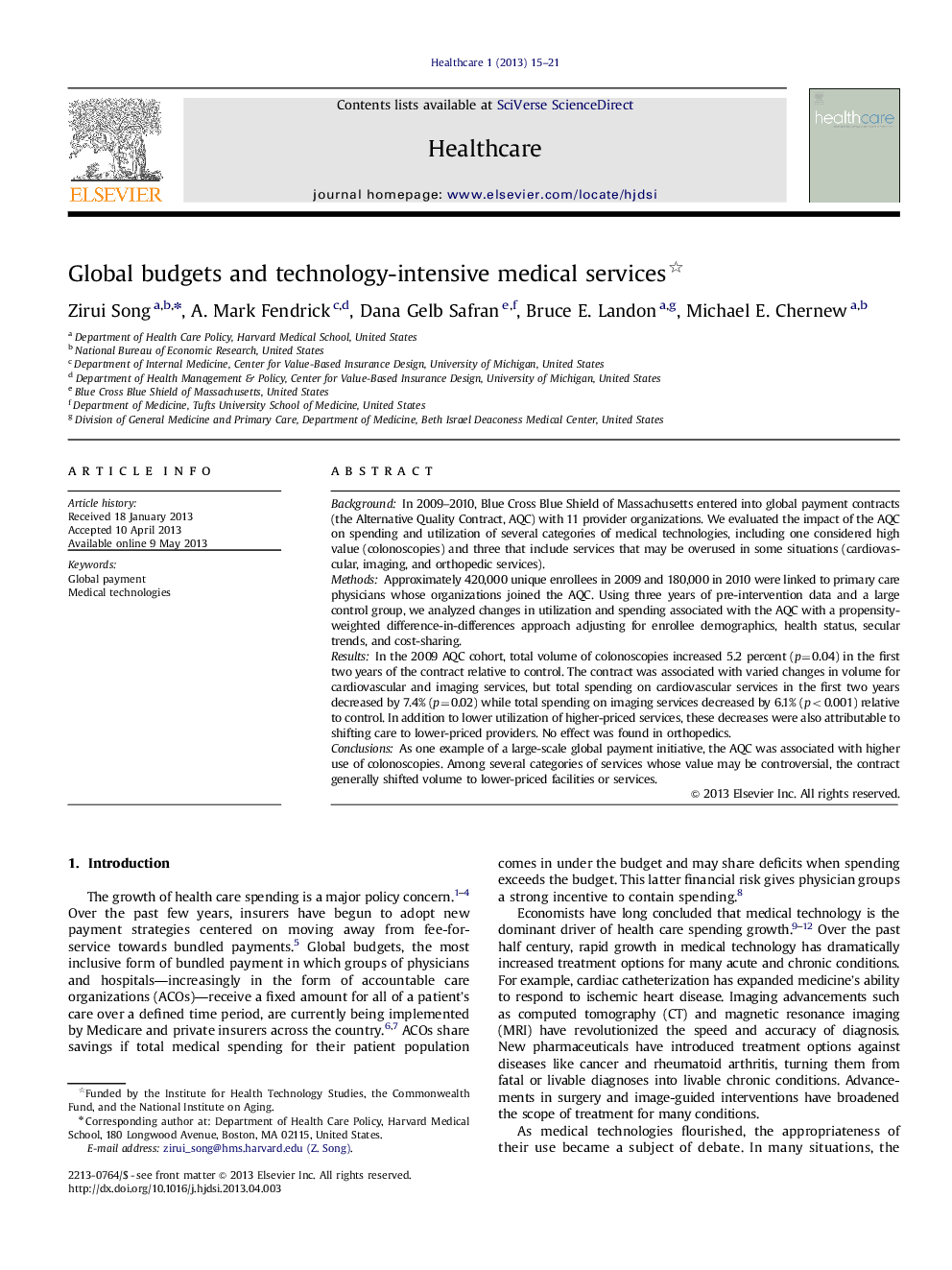| Article ID | Journal | Published Year | Pages | File Type |
|---|---|---|---|---|
| 514931 | Healthcare | 2013 | 7 Pages |
BackgroundIn 2009–2010, Blue Cross Blue Shield of Massachusetts entered into global payment contracts (the Alternative Quality Contract, AQC) with 11 provider organizations. We evaluated the impact of the AQC on spending and utilization of several categories of medical technologies, including one considered high value (colonoscopies) and three that include services that may be overused in some situations (cardiovascular, imaging, and orthopedic services).MethodsApproximately 420,000 unique enrollees in 2009 and 180,000 in 2010 were linked to primary care physicians whose organizations joined the AQC. Using three years of pre-intervention data and a large control group, we analyzed changes in utilization and spending associated with the AQC with a propensity-weighted difference-in-differences approach adjusting for enrollee demographics, health status, secular trends, and cost-sharing.ResultsIn the 2009 AQC cohort, total volume of colonoscopies increased 5.2 percent (p=0.04) in the first two years of the contract relative to control. The contract was associated with varied changes in volume for cardiovascular and imaging services, but total spending on cardiovascular services in the first two years decreased by 7.4% (p=0.02) while total spending on imaging services decreased by 6.1% (p<0.001) relative to control. In addition to lower utilization of higher-priced services, these decreases were also attributable to shifting care to lower-priced providers. No effect was found in orthopedics.ConclusionsAs one example of a large-scale global payment initiative, the AQC was associated with higher use of colonoscopies. Among several categories of services whose value may be controversial, the contract generally shifted volume to lower-priced facilities or services.
